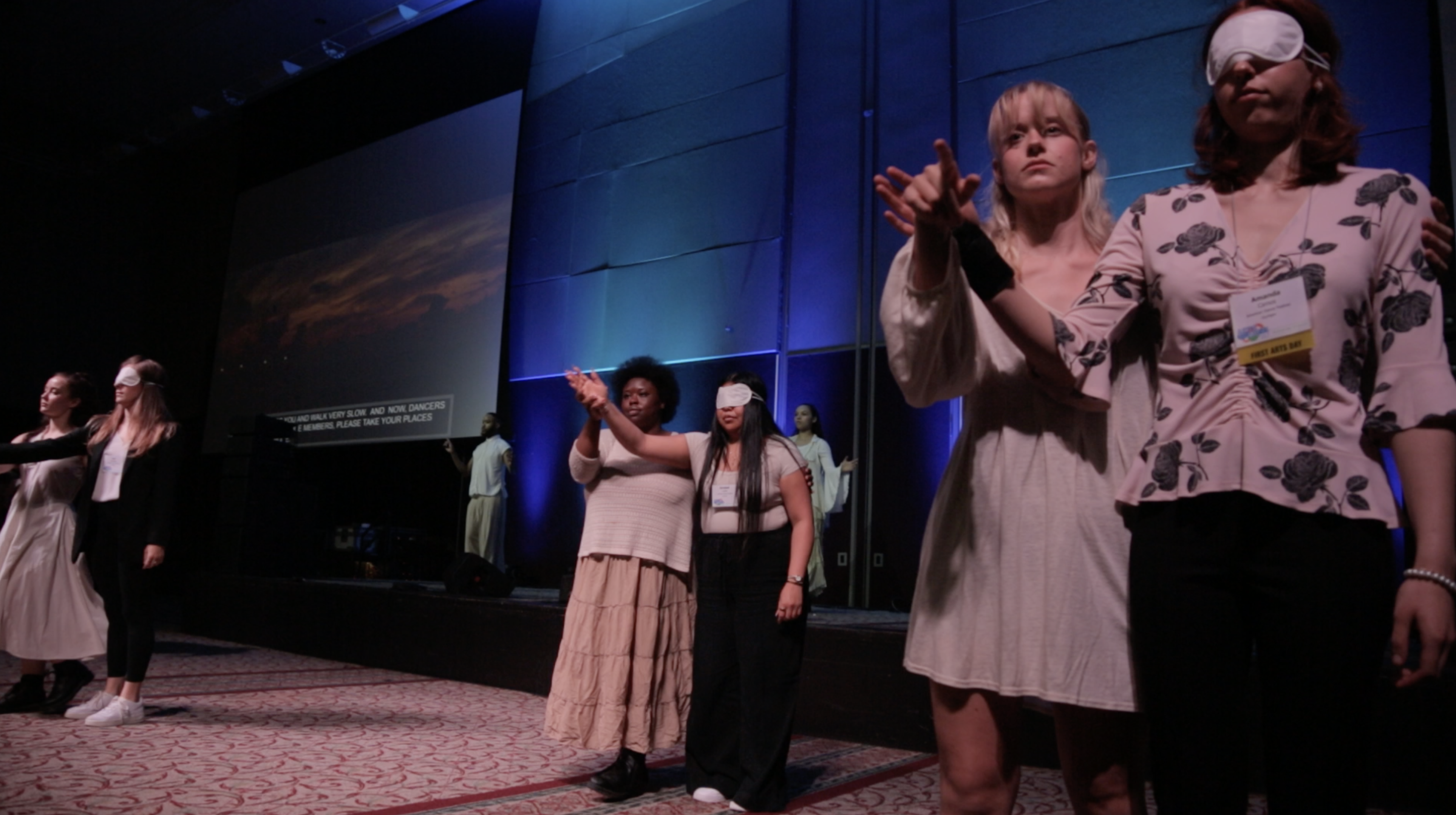Close your eyes and imagine a dance performance. What do you see and hear? Graceful ballerinas in tulle tutus performing jetés and pliés to classical music? Perhaps it’s jazz music and the rhythmic, percussive tap-tap-tap of metal-soled shoes. How about breaking, popping and locking over old-school hip-hop beats?
Now imagine your eyes remain closed for the entirety of the performance. What do you hear, feel and smell? What if you couldn’t hear the music or the rhythmic footfalls?
At ShaLeigh Dance Works in Durham, this is not an abstract mental exercise. SDW works at the intersections of cultures, ages and abilities to bring the transformative magic of dance and artistic expression to everyone. Artistic Director ShaLeigh Comerford collaborates with experts who bring their own lived experiences and otherwise untold stories to performances, thereby providing living wages to people disproportionately un- and underemployed. One collaborator is blind dancer DJ Robinson, who has created an immersive dance performance not only for audiences with visual impairment, but also for blindfolded audience members to experience artistic expression through hearing and touch, moving through several sensory stations on-stage.
“These performances are not meant to be viewed but experienced,” says Comerford, who aims to bring parallel performances to deaf audiences in 2026, with American Sign Language providers and other language justice expertise.
SDW, however, is navigating an all-too-common challenge in today’s shifting landscape. As a nonprofit dedicated to employing and celebrating artists with disabilities, it has found itself caught in broader debates about arts funding and inclusion. Because of recent changes to DEI at the federal level, the studio was informed that "all contracts are under review for compliance," with future arts funding likely to focus on other priorities.
As a result, SDW is now preparing for the likelihood of reduced grant support and actively pursuing alternative revenue streams critical to sustaining its world-class dance instruction, workforce development for artists with disabilities, and transformative performances for audiences of all backgrounds.
The Mary Duke Biddle Foundation understands and honors the value of ShaLeigh DanceWork’s vision and mission, and is partnering with the studio under MDBF’s new grantmaking approach, which aims to be more accessible, reducing red tape and helping organizations be more effective and innovative. Under this new approach, MDBF hopes to foster creativity, innovation and learning in the Triangle with meaningful collaboration and reliable, flexible general operating resources. Its goals include helping nonprofit arts education organizations like SDW build momentum, stay curious and creative, and shape Triangle communities into being the best places to live, work, learn and play.
ShaLeigh DanceWorks recognizes the power of expressive, shared humanity to transform lives outside its studio walls to enrich communities and society overall. The creatives behind the magic invite you to visit their website and take part in an inclusive, immersive experience unlike any other.

